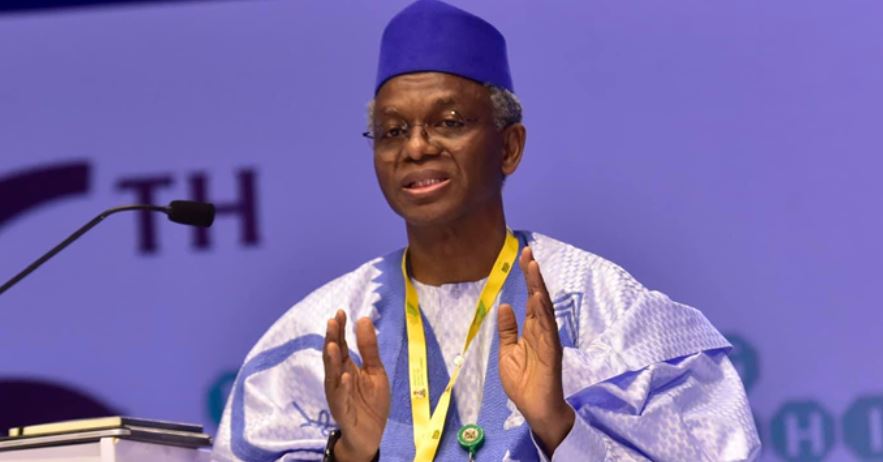Paragraph 1: The Genesis of Political Maneuvering
The Nigerian political landscape is buzzing with activity as the 2027 presidential election looms on the horizon. Former Vice President Atiku Abubakar and ex-Kaduna State Governor Nasir El-Rufai have ignited speculation about a potential opposition coalition against the ruling All Progressives Congress (APC) and President Bola Tinubu. Their recent visit to former President Muhammadu Buhari, accompanied by other prominent political figures, has fueled these rumors, despite Atiku’s insistence that it was merely a post-Sallah courtesy call. Political analysts and members of the APC, however, interpret the visit as a strategic move towards forging a united front against the current administration. This perceived alliance has triggered concerns within the APC, particularly regarding the potential departure of the Congress for Progressive Change (CPC) bloc, a key component of the ruling party.
Paragraph 2: The APC’s Response to Coalition Talks
The APC has responded dismissively to the speculation surrounding the opposition coalition and the potential CPC exodus. Senator Ajibola Bashiru, the APC National Secretary, questioned the validity of these claims, emphasizing the continued presence of prominent CPC figures within the party. He challenged the narrative of a mass defection, pointing out the unwavering loyalty of key members like Vice National Chairman (North-West) Garba Datti Mohammed and former Governor Al-Makura. Bashiru downplayed the significance of the alleged coalition talks, attributing them to the media’s tendency to amplify the actions of certain individuals. This assertive response underscores the APC’s confidence in its internal cohesion and its dismissal of the opposition’s efforts.
Paragraph 3: The Presidency’s Perspective on the Political Landscape
The Presidency, through Daniel Bwala, Special Adviser on Policy Communication to President Tinubu, has characterized the coalition talks as a desperate power grab by a group of politically incompatible individuals. Bwala criticized the lack of shared ideology among the potential coalition members, highlighting Peter Obi’s statement about their primary goal being to seize power. He also accused El-Rufai of using the situation to his advantage, portraying him as a manipulative figure exploiting the political ambitions of others. Bwala further asserted that internal resistance within the Peoples Democratic Party (PDP) had thwarted El-Rufai’s attempts to lure opposition members to the Social Democratic Party (SDP), indicating a perceived failure of the coalition-building strategy.
Paragraph 4: Internal Dynamics within the Opposition
Bwala’s comments shed light on the complexities and potential fragility of the proposed opposition alliance. The reference to internal resistance within the PDP, particularly from figures like Sule Lamido, suggests that El-Rufai’s efforts to consolidate opposition forces under the SDP banner have encountered significant obstacles. Lamido’s reminder of El-Rufai’s past political affiliations with the PDP underscores the intricate web of relationships and historical baggage within the Nigerian political sphere. This internal dissent within the opposition ranks weakens the potential threat posed to the ruling APC and raises questions about the long-term viability of any coalition.
Paragraph 5: The Presidency’s Focus on Governance
Amidst the political maneuvering and speculation, the Presidency maintains that President Tinubu remains focused on governance and will not be distracted by what it perceives as self-serving political alliances. This stance projects an image of stability and dedication to the nation’s affairs, contrasting it with the perceived opportunistic nature of the opposition’s activities. By emphasizing its commitment to governance, the Presidency aims to reassure the public and demonstrate its resolve to address the country’s challenges, irrespective of political machinations.
Paragraph 6: The 2027 Election Outlook
The emerging political landscape suggests a complex and dynamic lead-up to the 2027 elections. The APC appears confident in its ability to withstand the challenges posed by the potential opposition coalition, dismissing its efforts as futile and driven by personal ambition rather than a cohesive political vision. The opposition, however, faces internal divisions and a lack of clear ideological alignment, which could hinder its ability to present a united front against the ruling party. The coming years will likely witness further political maneuvering and realignments as various factions jockey for position and attempt to forge alliances in the pursuit of power. The ultimate outcome of the 2027 elections remains uncertain, but the current dynamics point towards a highly competitive and potentially volatile political contest.


